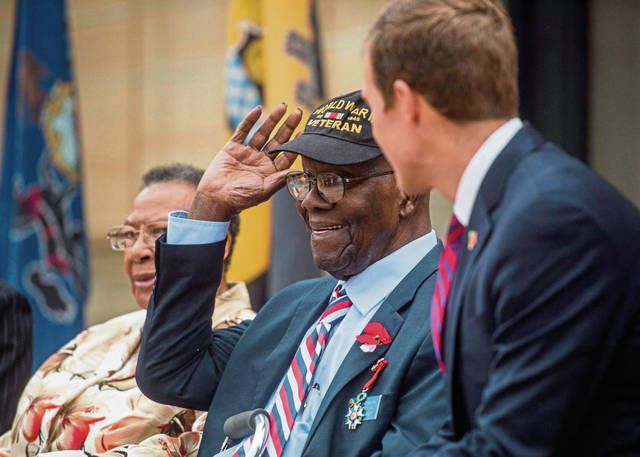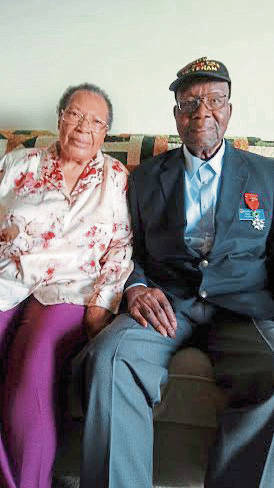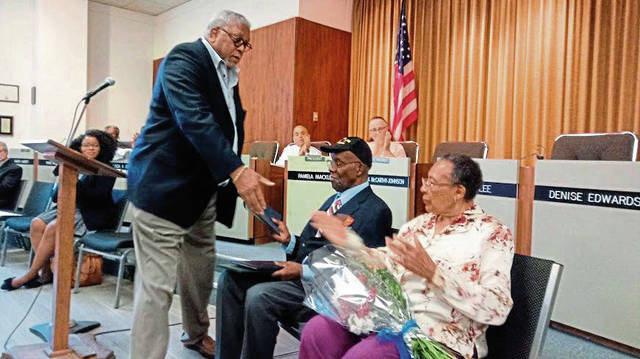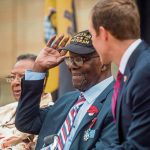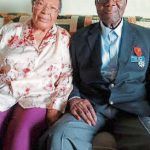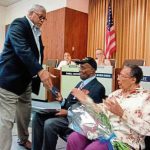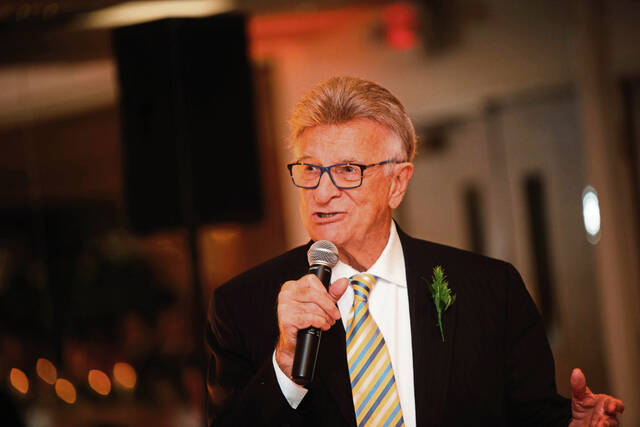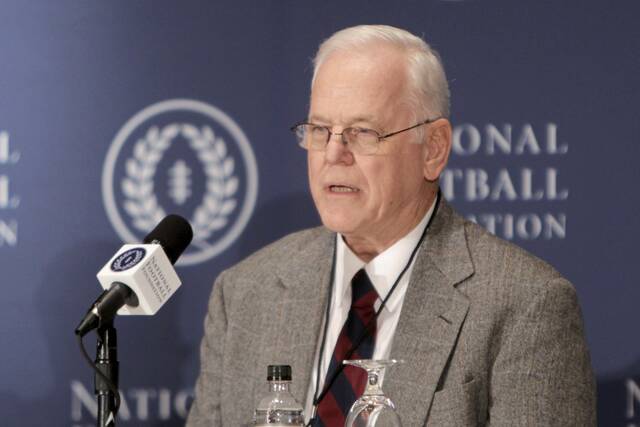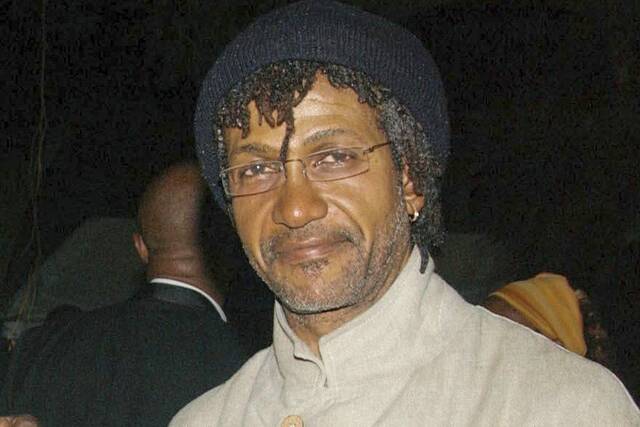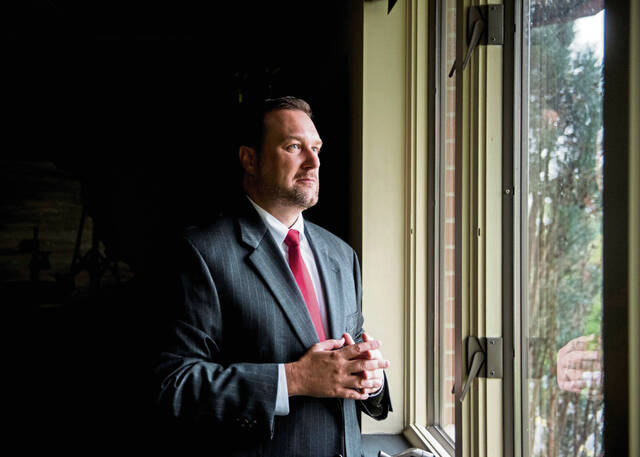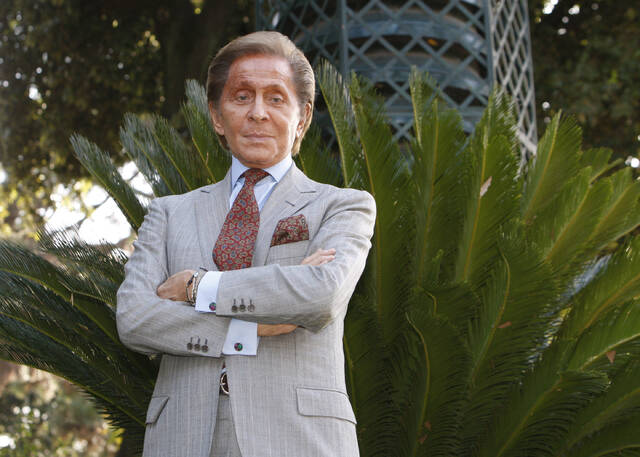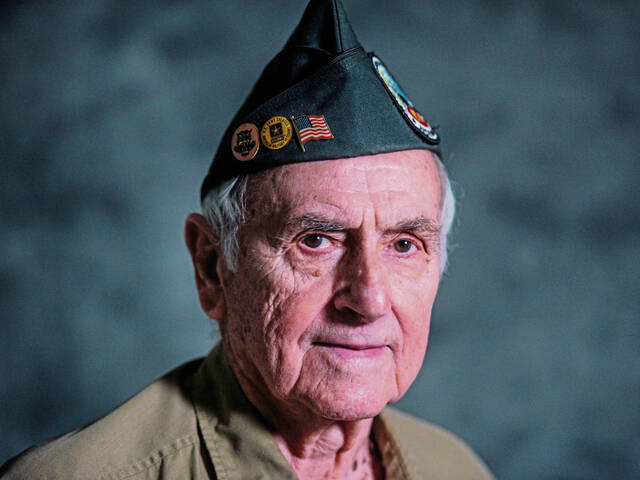On a hot and steamy July day two years ago, Henry Parham sat in his Wilkinsburg home with his wife, Ethel by his side and relived the horror of the D-Day invasion.
Though the invasion had happened some 75 years before, the look in Parham’s eyes made it seem like no time had passed. He was once again on Omaha Beach, a 22-year-old private first class, fighting for his country and for his life.
“As long as you were on the beach, you were being attacked, so you had to protect yourself,” he said.
Henry Parham passed away peacefully four days ago — July 4 — at the Oakland VA Hospital. He was 99.
Parham was a member of the all-Black 320th Very Low Altitude Anti-Aircraft Barrage Balloon Battalion, the only Black combat unit to take part in the D-Day invasion, and the only barrage balloon battalion to land on the beaches.
From early June to well into August 1944, Parham stayed on the beach with his unit performing the largely unpublicized mission of raising hydrogen-filled barrage balloons to deny low-level airspace to enemy planes. The balloons were anchored to the ground by steel cables, with small explosive charges attached to them that were capable of taking the wing off of a swiftly moving plane.
The balloons could be raised or lowered to the desired altitude by a winch, thus protecting the assaulting American infantry and armor from being strafed by German planes. The balloons and their cables dot the sky in many photos of the Normandy invasion.
While Parham was part of a unit whose function undoubtedly saved many lives, he almost lost his own life just trying to get to shore on D-Day. He was in the third wave to land at Omaha Beach. As he got off the landing craft, the water was up to his neck, all of his equipment was on his back — and he didn’t know how to swim.
In a 2019 interview with the Tribune-Review, sitting in his living room, Parham relived the fear that he felt seven-and-a-half decades before.
“It was awful. It was a scary thing, but it was one of the things you had to do because there was no turning back,” he said.
The D-Day invasion marked the turning point of World War II, leading to the Allied liberation of Europe. But that day, June 6, 1944, was only the beginning for Parham, who spent 68 days on Omaha Beach. He and his unit were sitting ducks the whole time. They dug foxholes in the sand to escape the steady barrage unleashed by German soldiers, who had dug in and constructed pillboxes from which they could fire at anyone on the Normandy coast.
Day after day, Parham stayed on the beach, in harm’s way, helping float the balloons that protected allied soldiers and reinforcements and supplies arriving at Omaha Beach. A change of clothes was considered a luxury. The beach was where everyone went to the bathroom. And there were no tents. He slept in a foxhole.
“That’s right. There was no bed,” said Parham. “Staying in your trench was the hardest thing. It was two months of ducking and dodging and hiding. I was fortunate that I didn’t get hit. I managed to survive with God’s strength and help.”
Parham’s battalion ended up serving 140 days in France, including a stint in Cherbourg protecting Gen. George Patton’s Third Army. A commendation by Supreme Allied Commander Gen. Dwight D. Eisenhower cited the 320th for the “splendid manner” in which it carried out its duties.
But when Parham returned to his segregated hometown of Richmond, Va., after the war, he didn’t exactly receive a hero’s welcome. The recognition he deserved, but never sought, didn’t come until decades after he moved to Pittsburgh, where better opportunities awaited him.
He used the GI Bill to learn a trade and landed a job as a machine operator for the Buncher Co. Pittsburgh is also where he met Ethel. They were married 47 years ago and made their home in East Liberty before moving to Wilkinsburg, where they lived for the last 19 years.
After retiring, Parham remained active in the community and volunteered with the American Legion and the Veterans Administration, visiting hospitalized veterans.
Finally, in 2013, the French government named Parham a “Chevalier,” awarding him the Legion of Honor, its highest military decoration.
In June 2019, Parham was recognized by U.S. Rep. Mike Doyle on the House floor. And also that summer, the Wilkinsburg Borough Council and Mayor Marita Garrett honored Parham with a proclamation for “outstanding service to our country.”
Among those on hand to honor Parham was Allegheny County Councilman DeWitt Walton, whose district includes Wilkinsburg.
“I think Mr. Parham did something special,” said Walton. “Given the history of segregation, he made a commitment to go defend his country when his country wouldn’t defend him.”
Garrett issued a statement following Parham’s death.
“First, my sincere condolences to the Parham family. I am grateful for his legacy of not only military service, but public service that Mr. Parham exemplifies in this region and nation,” she said. “In 2019, I had the honor of recognizing Mr. Parham with a proclamation noting his outstanding service to our country. He forever will be a hero.”
Henry Parham is survived by his wife of 47 years, Ethel Parham; and two sisters-in-law, Bertha L. Daglow and Edolia Perry; and four generations of nieces and nephews.
Friends will be received Sunday, 4-8 p.m. at Rose Funeral Home & Cremation Services, with an American Legion Service at 7 p.m. on Sunday.
A service will be held Monday at 11 a.m. In lieu of flowers, memorial contributions may be sent to the Veterans Breakfast Club, 200 Magnolia Place, Pittsburgh, PA 15222.


